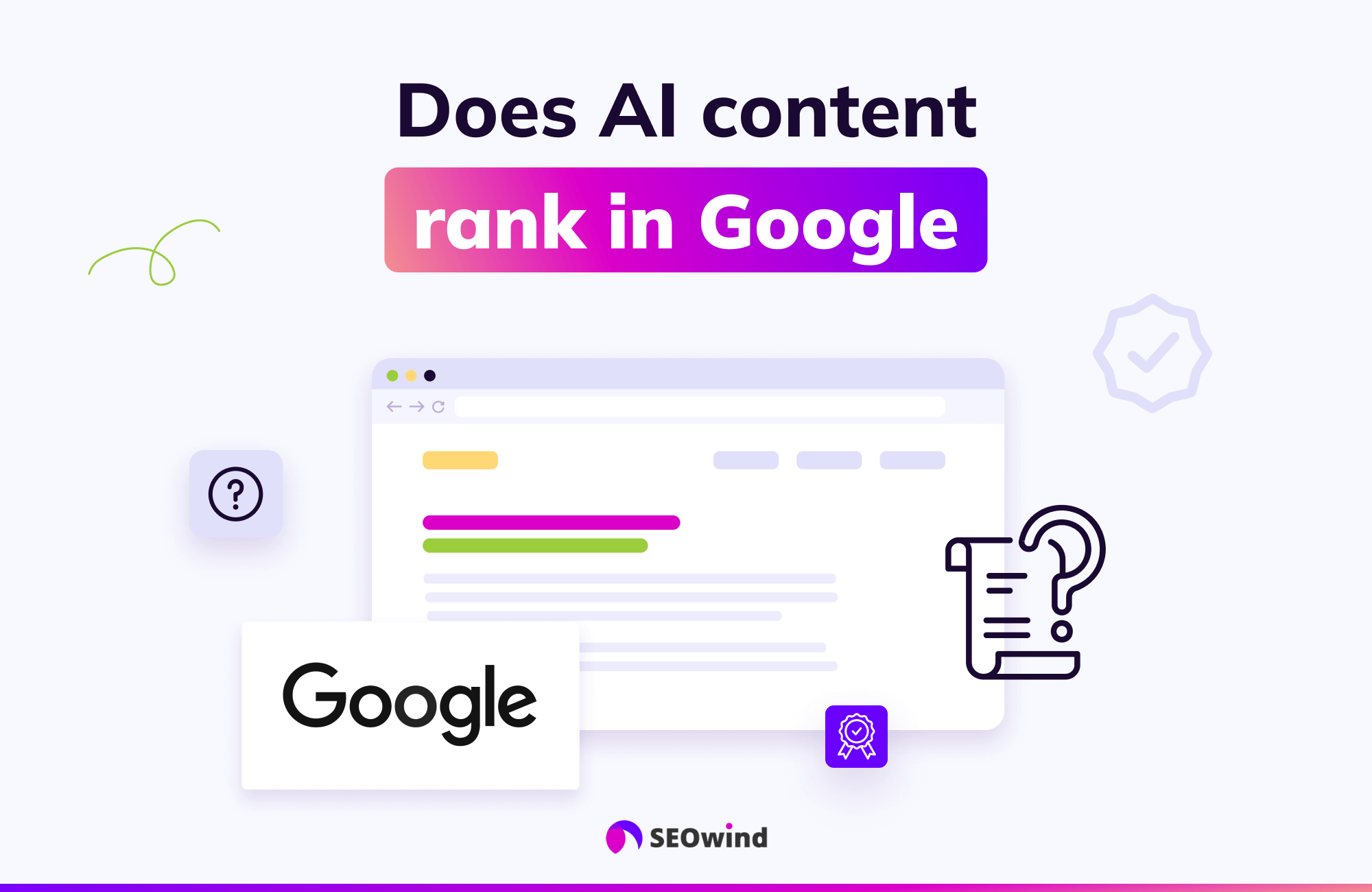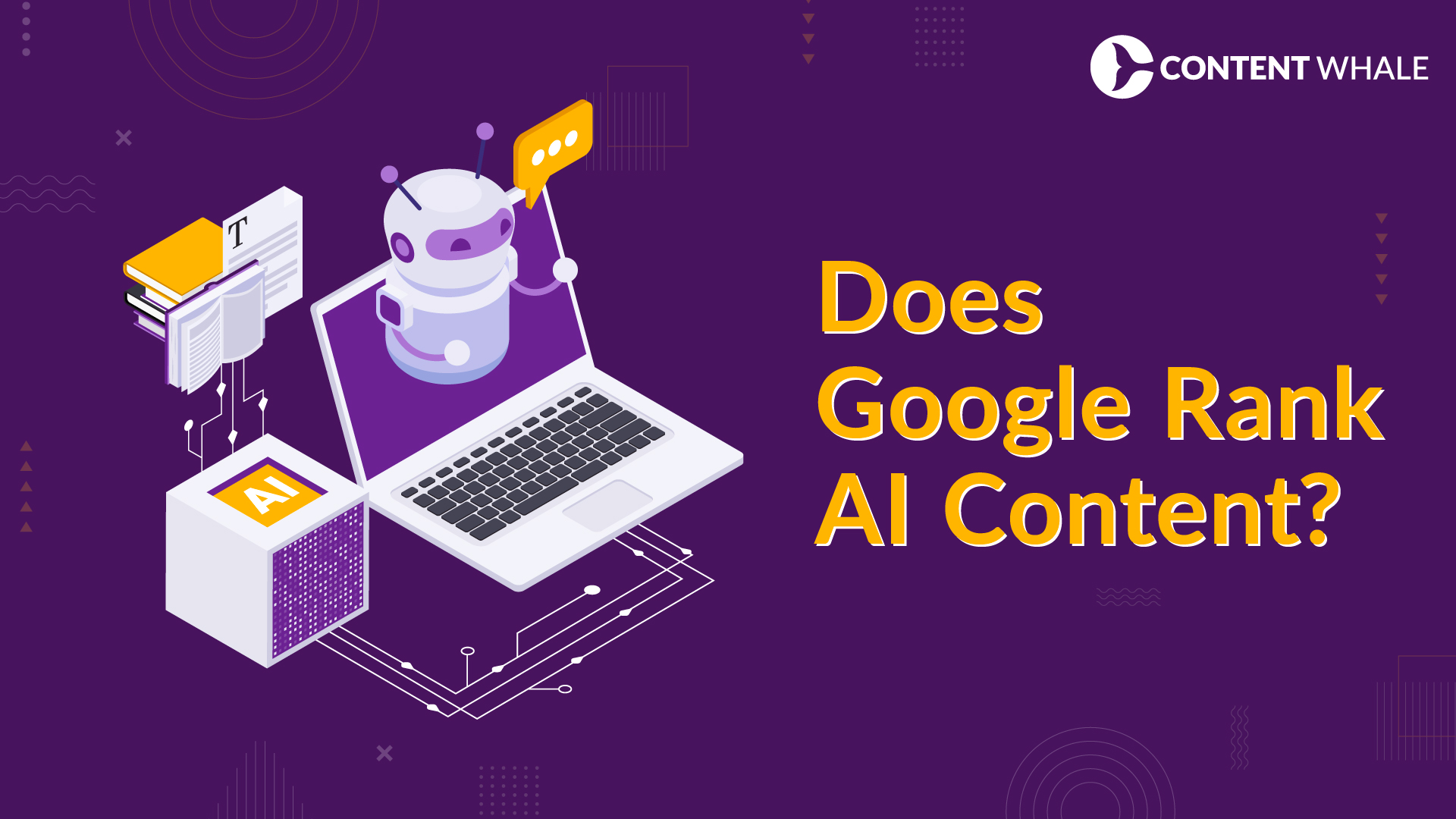Does AI Generated Content Rank In Google? The Ultimate Guide For 2023
Hey there, digital explorers! Let's dive straight into the juicy stuff. If you've been wondering does AI generated content rank in Google, you're definitely not alone. This topic has been buzzing around like a hive of bees on caffeine. Everyone's curious about how AI fits into the world of SEO and whether it can truly compete with human-generated content. So, buckle up because we're about to break it down for you in a way that's easy to digest but packed with insights. Trust me, by the end of this, you'll be a pro at understanding the ins and outs of AI content and its ranking potential.
Let's face it, AI is everywhere these days. From chatbots answering your customer service queries to virtual assistants scheduling your meetings, it's hard to escape the influence of artificial intelligence. But when it comes to content creation, the question remains—can AI-generated content hold its own in the ultra-competitive world of Google rankings? The answer isn't as straightforward as you might think. There's a lot to unpack here, from the algorithms that power Google to the nuances of human creativity. Stick around, and we'll unravel this mystery together.
Before we dive deeper, it's important to set the stage. This article isn't just another run-of-the-mill blog post. It's crafted to give you the tools and knowledge you need to make informed decisions about AI-generated content. We'll cover everything from the technical aspects of SEO to the ethical considerations of using AI in content creation. So, whether you're a seasoned marketer or just starting out, this guide will be your go-to resource for all things AI and Google rankings.
- Paige Vanzant The Rise Of A Martial Arts Sensation
- Miley Cyrus Maxx The Ultimate Guide To Her Life Career And Influence
Understanding AI Generated Content
Alright, let's start with the basics. What exactly is AI-generated content? Simply put, it's any text, image, or even video that's created by artificial intelligence algorithms rather than human hands. Now, you might be thinking, "How does that even work?" Great question! AI uses complex algorithms and machine learning models to analyze vast amounts of data and then generate content based on patterns it identifies. Think of it like a super-smart robot that's been trained on millions of examples of human writing.
Types of AI-Generated Content
There are different types of AI-generated content, each with its own strengths and limitations. Here's a quick rundown:
- Text Content: Articles, blog posts, product descriptions—you name it. AI can churn out text at lightning speed, but the quality can vary depending on the sophistication of the model.
- Visual Content: Images, videos, and graphics can also be generated by AI. This is particularly useful for creating visuals for social media or websites.
- Interactive Content: Think chatbots, quizzes, and personalized recommendations. AI can create interactive experiences that engage users in real-time.
Each type of content has its own set of challenges when it comes to ranking on Google. But we'll get to that in a bit. For now, just know that AI-generated content isn't one-size-fits-all. It comes in many forms, and each form requires a different approach to optimization.
- Damon Wayans Jr Height The Inside Scoop On The Stars Measurements And Career
- Best Auntie Annes Pretzel Your Ultimate Guide To The Pretzel Perfection
Does AI Content Rank on Google? The Big Question
Now, let's tackle the million-dollar question: does AI generated content rank in Google? The short answer is yes, but with some caveats. Google's algorithms are designed to prioritize high-quality, relevant, and original content. While AI-generated content can certainly meet these criteria, it's not always a slam dunk. The key lies in how the content is created and optimized.
Factors Affecting Ranking
Several factors can influence whether AI-generated content ranks well on Google:
- Relevance: Is the content relevant to the user's search query? If it doesn't directly address the user's intent, it's unlikely to rank well.
- Originality: Google values original content. If your AI-generated content is too similar to existing content, it may be flagged as duplicate.
- Quality: High-quality content is king. Even if AI generates the content, it needs to be well-written, informative, and engaging.
- SEO Optimization: Proper use of keywords, meta tags, and other SEO elements is crucial for ranking.
These factors work together to determine whether AI-generated content will succeed in the Google rankings. But here's the kicker—it's not just about the content itself. The context in which the content is presented also plays a big role.
The Role of E-A-T in AI Content
Let's talk about E-A-T—Expertise, Authoritativeness, and Trustworthiness. These are critical factors in Google's ranking algorithm, and they apply to AI-generated content just as much as human-generated content. For AI content to rank well, it needs to demonstrate these qualities.
Building Expertise
Expertise is all about showing that you know what you're talking about. If your AI-generated content is about a specific topic, it needs to reflect a deep understanding of that topic. This can be achieved by using data from reputable sources and ensuring the content is accurate and up-to-date.
Establishing Authority
Authority is about building trust with your audience. This can be done by linking to authoritative sources, getting backlinks from reputable websites, and consistently producing high-quality content. Even AI-generated content can build authority over time if it's done right.
Gaining Trust
Trustworthiness is all about being transparent and honest with your audience. If your AI-generated content is transparent about its origins and doesn't try to deceive users, it's more likely to gain trust. This includes disclosing that the content was created by AI if that's the case.
Long-Tail Keywords and AI Content
Long-tail keywords are a game-changer for AI-generated content. These are specific, niche phrases that users might search for. Because they're less competitive than broad keywords, they offer a great opportunity for AI content to rank. For example, instead of targeting "AI content," you might target "how to optimize AI-generated content for Google rankings." This approach can help your content stand out in a crowded field.
Strategies for Using Long-Tail Keywords
Here are some strategies for incorporating long-tail keywords into your AI-generated content:
- Research: Use tools like Google Keyword Planner or SEMrush to identify relevant long-tail keywords.
- Natural Integration: Don't force the keywords into your content. Let them flow naturally within the text.
- Focus on User Intent: Make sure the keywords align with the user's intent. This will improve the chances of ranking.
By focusing on long-tail keywords, you can increase the likelihood of your AI-generated content ranking on Google. It's all about finding the sweet spot between what users are searching for and what your content can deliver.
SEO Best Practices for AI Content
SEO is the backbone of any successful content strategy, and that includes AI-generated content. Here are some best practices to keep in mind:
Keyword Optimization
Keyword optimization is crucial for helping your content rank. Use primary and secondary keywords strategically throughout your content, but avoid keyword stuffing. Remember, the goal is to create content that's both user-friendly and search engine-friendly.
Meta Tags and Titles
Don't forget about meta tags and titles. These are the first things users see when they search for your content. Make sure they're compelling and include your target keywords. A well-crafted meta description can make all the difference in click-through rates.
Mobile Optimization
With more and more users accessing the web on mobile devices, mobile optimization is a must. Ensure your AI-generated content is mobile-friendly and loads quickly. Google's mobile-first indexing means that your mobile performance can significantly impact your rankings.
Challenges of AI-Generated Content
While AI-generated content has its advantages, it's not without its challenges. Here are some of the biggest hurdles you might face:
Content Quality
One of the biggest challenges is ensuring the quality of the content. AI-generated content can sometimes lack the nuance and creativity of human writing. This can make it harder to engage readers and rank well on Google.
Algorithm Updates
Google's algorithms are constantly evolving, and what works today might not work tomorrow. Keeping up with these changes can be a challenge, especially for AI-generated content that relies on specific patterns and structures.
Trust Issues
There's also the issue of trust. Some users may be skeptical of AI-generated content, especially if it's not transparent about its origins. Building trust with your audience is key to overcoming this challenge.
Success Stories of AI-Generated Content
Despite the challenges, there are plenty of success stories when it comes to AI-generated content. Companies like Forbes and The Washington Post have used AI to generate articles and reports, with great results. These examples show that AI-generated content can rank well on Google if it's done right.
Case Studies
Let's look at a few case studies:
- Forbes: Forbes uses AI to generate earnings reports and other financial content. This has allowed them to produce content faster and more efficiently while maintaining high quality.
- The Washington Post: The Washington Post uses AI to generate sports reports and other news articles. This has helped them keep up with the fast-paced world of journalism.
These examples demonstrate that AI-generated content can be a powerful tool when used effectively.
Future of AI-Generated Content
So, where is AI-generated content headed in the future? The possibilities are endless. As AI technology continues to evolve, we can expect to see even more sophisticated content creation tools. This could lead to more personalized, engaging, and high-quality content that rivals—or even surpasses—human-generated content.
Trends to Watch
Here are some trends to keep an eye on:
- Natural Language Processing: As NLP technology improves, AI-generated content will become more natural and engaging.
- Personalization: AI will enable more personalized content experiences, tailored to individual users' preferences.
- Integration with Other Technologies: AI will likely be integrated with other emerging technologies, such as augmented reality and virtual reality, to create even more immersive content experiences.
The future of AI-generated content is bright, and it's an exciting time to be part of this space.
Conclusion
So, there you have it—the lowdown on does AI generated content rank in Google. While there are certainly challenges to overcome, the potential rewards are significant. By focusing on quality, relevance, and optimization, you can increase the chances of your AI-generated content ranking well on Google.
Now, it's your turn to take action. Whether you're experimenting with AI-generated content for the first time or looking to refine your existing strategy, remember to keep the user at the center of everything you do. And don't forget to share your thoughts and experiences in the comments below. Let's keep the conversation going!
Table of Contents
Understanding AI Generated Content
Does AI Content Rank on Google? The Big Question
The Role of E-A-T in AI Content
Long-Tail Keywords and AI Content
Strategies for Using Long-Tail Keywords
SEO Best Practices for AI Content
Challenges of AI-Generated Content



Detail Author:
- Name : Ignatius Kozey Jr.
- Username : nader.damon
- Email : zpurdy@emmerich.com
- Birthdate : 1998-03-13
- Address : 336 Deion Walk Suite 977 Abshireshire, IN 41277-6520
- Phone : +12512606899
- Company : Harris-Lind
- Job : Sawing Machine Setter
- Bio : Repellat est ad omnis adipisci beatae repellat. Modi iusto molestiae id reprehenderit sunt qui maiores dolor. Impedit perferendis dolor dolores minima doloremque quidem id.
Socials
tiktok:
- url : https://tiktok.com/@carmelo.wyman
- username : carmelo.wyman
- bio : Maxime voluptas culpa neque est nam repellat.
- followers : 166
- following : 349
instagram:
- url : https://instagram.com/carmelo.wyman
- username : carmelo.wyman
- bio : Repellendus non a corporis id totam sed. Ut similique eaque autem natus laudantium.
- followers : 5702
- following : 2153
twitter:
- url : https://twitter.com/carmelo_wyman
- username : carmelo_wyman
- bio : Et doloribus aspernatur rerum. Quis est quasi et et quo. Dolorum culpa nihil consequatur optio recusandae quia nobis.
- followers : 1288
- following : 2630